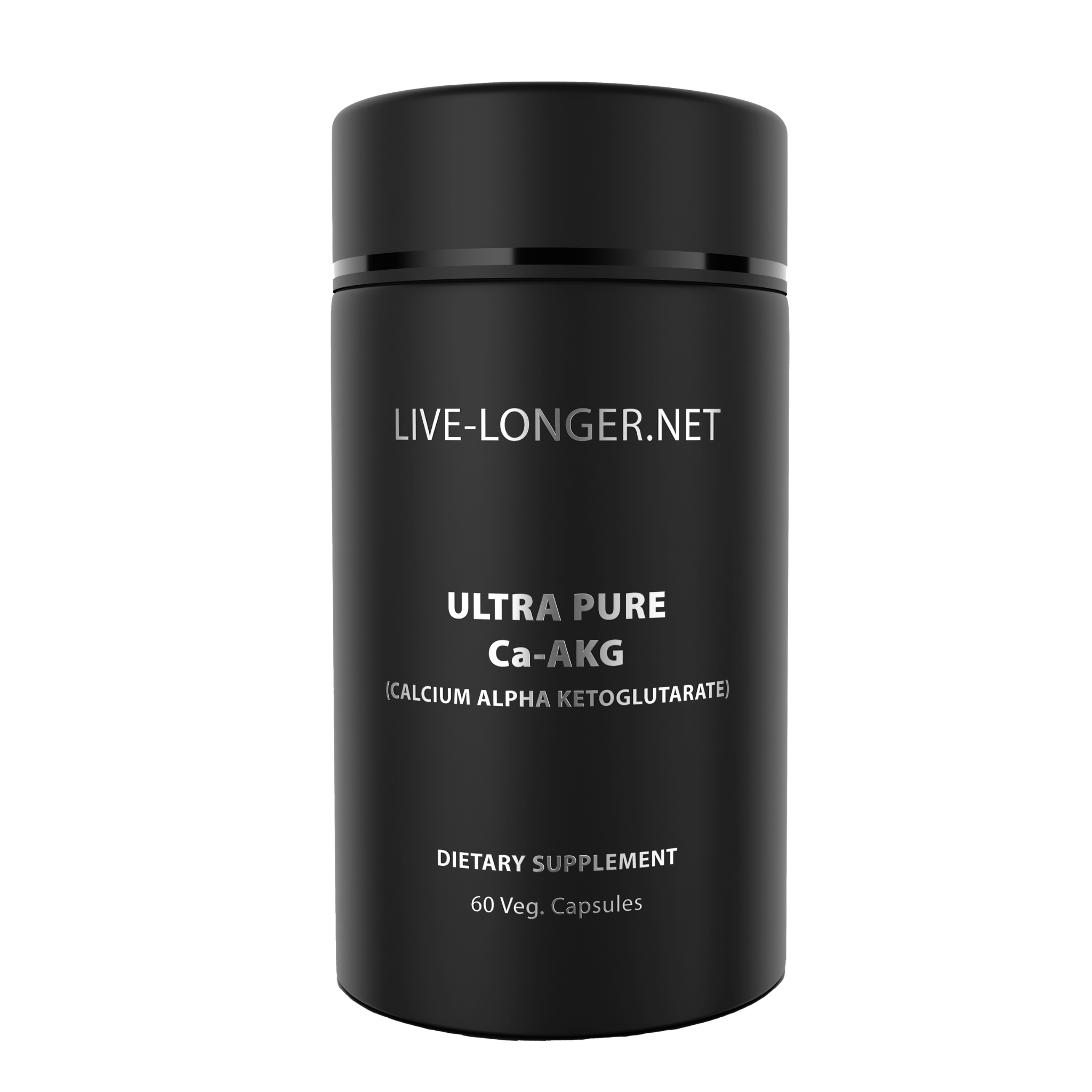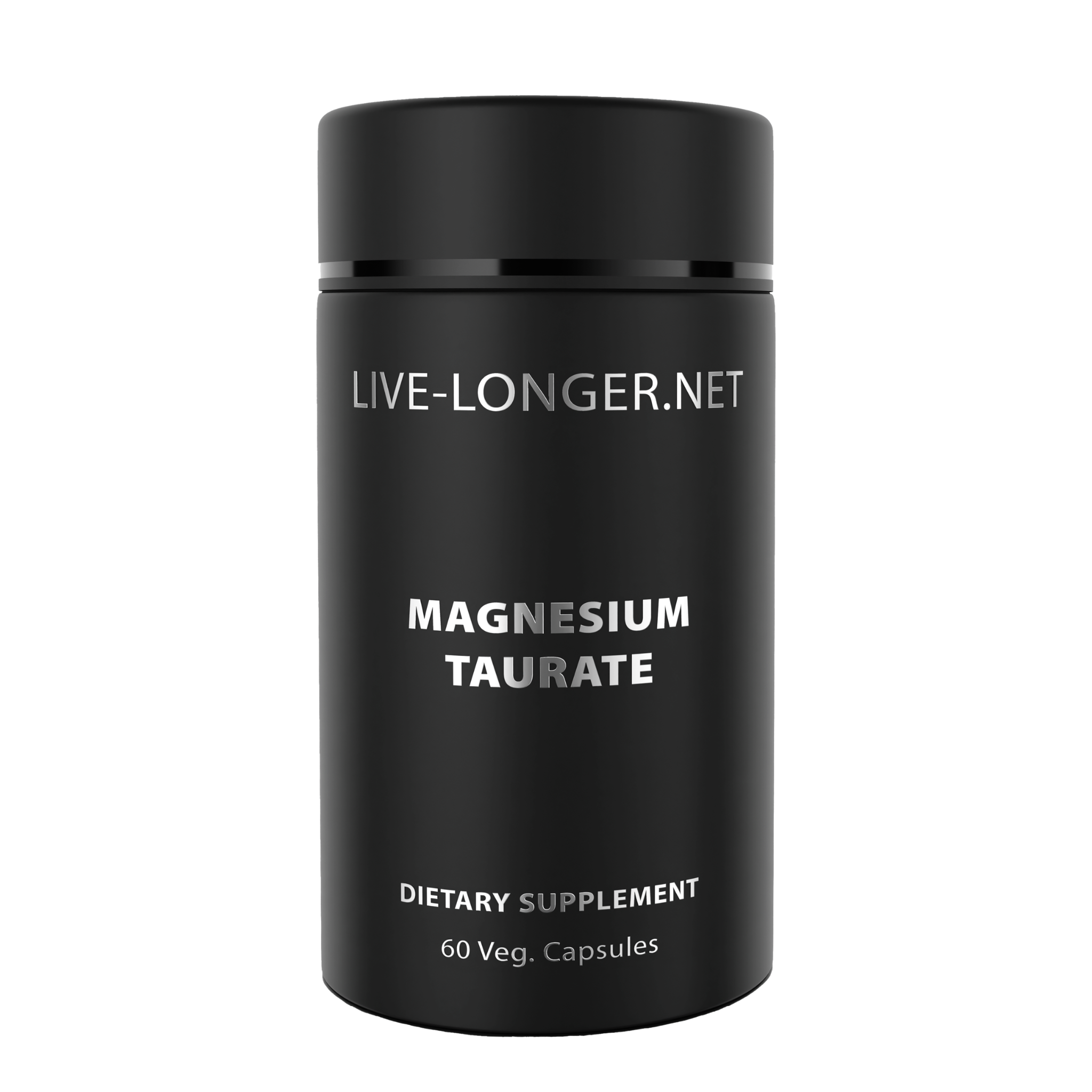Aging is a natural part of life, but our lifestyle choices, particularly our diet, can influence how we age. An anti-aging diet not only promotes longevity but also enhances the quality of life by preventing age-related diseases. This blog explores the science behind anti-aging diets, key principles, and specific foods and supplements that contribute to healthy aging. Understanding the connection between what we eat and how we age is crucial for anyone looking to improve their health and extend their lifespan.
A Brief About the Link Between Aging and Diet
Aging is influenced by a combination of genetic and environmental factors, with diet playing a significant role. A nutritious diet can slow down the aging process by enhancing cellular health, reducing inflammation, and combating oxidative stress.
Research shows that certain dietary patterns can extend lifespan and improve healthspan, the period of life spent in good health (1). By choosing the right foods, we can positively impact our biological age, which may differ from our chronological age due to lifestyle factors.
Key Principles of an Anti-Aging Diet
An anti-aging diet emphasizes whole, unprocessed foods rich in essential nutrients. Key principles include:
Balanced Diet: Incorporate a variety of food groups to ensure a range of nutrients.
Rich in Fruits and Vegetables: These are high in vitamins, minerals, and antioxidants.
Low in Processed Foods: Avoid foods high in sugars, unhealthy fats, and additives.
Adequate Hydration: Maintain optimal hydration for overall health. Adhering to these principles can help reduce the risk of chronic diseases and promote longevity
Components of Anti Aging Diet
Antioxidants Rich Foods
Antioxidants are compounds that neutralize free radicals, which can cause cellular damage and accelerate aging. Diets rich in antioxidants have been shown to delay aging and reduce the risk of chronic diseases. Foods high in antioxidants include berries, nuts, and green leafy vegetables.
Studies highlight the role of antioxidants in enhancing skin health, improving immune function, and reducing inflammation (2). Consuming various antioxidant-rich foods can provide significant health benefits and help maintain a youthful appearance.
Omega-3 Fatty Acids
Omega-3 fatty acids are essential fats that play a crucial role in reducing inflammation and supporting heart and brain health, which are vital for aging gracefully. Sources of omega-3 fatty acids include fatty fish like salmon, mackerel, and sardines, as well as plant-based sources like flaxseeds, chia seeds, and walnuts.
Research indicates that omega-3s can improve cardiovascular health, reduce the risk of neurodegenerative diseases, and support healthy skin (3). Including omega-3-rich foods is a key component of an anti-aging dietary strategy.
Want to know more about omega-3, Click here.
Fiber
Fiber is essential for digestive health and has been linked to a lower risk of age-related diseases such as heart disease, diabetes, and certain cancers. High-fiber foods include whole grains, fruits, vegetables, and legumes. Fiber helps regulate blood sugar levels, lowers cholesterol, and promotes healthy digestion (4). Therefore, you should aim to include a variety of fiber-rich foods in your daily diet to support longevity and maintain a healthy weight.
Protein
Protein is crucial for maintaining muscle mass and strength, which naturally decline with age. Adequate protein intake supports muscle repair, immune function, and skin health. You should include lean meats, poultry, fish, beans, legumes, and dairy in your diet.
Research suggests that older adults may benefit from slightly higher protein intake to counteract muscle loss and support overall health (5). Consuming a variety of protein sources ensures you get all the essential amino acids needed for optimal bodily function and longevity.
Hydration
Staying hydrated is vital for maintaining skin elasticity and overall bodily functions. In contrast, dehydration can accelerate the aging process and lead to various health issues. You should aim for at least eight glasses of water daily, and include hydrating foods like cucumbers, watermelon, and oranges.
Adequate hydration can improve energy levels, cognitive function, and skin appearance, making it a simple yet effective anti-aging strategy (6).
Anti-Aging Super Foods
Superfoods are nutrient-dense foods that offer numerous health benefits. Examples include blueberries, spinach, quinoa, and turmeric. These foods are packed with vitamins, minerals, antioxidants, and other beneficial compounds.
Regularly consuming superfoods can enhance immune function, reduce inflammation, and protect against chronic diseases. In fact, incorporating a variety of superfoods into your diet can provide a powerful boost to your overall health and longevity (7).
Superfoods are an excellent addition to any anti-aging diet due to their high nutrient content and health-promoting properties.
Vitamins and Minerals
Vitamins and minerals play vital roles in maintaining health and preventing age-related diseases. Key nutrients for anti-aging include (8):
Vitamin C: Supports skin health and immune function.
Vitamin D: Essential for bone health and immune support.
Calcium: Maintains strong bones and teeth.
Magnesium: Supports muscle and nerve function.
You should include citrus fruits, dairy products, leafy greens, and nuts in your diet to ensure adequate intake of these essential nutrients. A well-rounded diet rich in vitamins and minerals can help you age gracefully and maintain optimal health.
Healthy Fats
Healthy fats are essential for brain health, hormone production, and reducing inflammation. Sources of healthy fats include avocados, olive oil, nuts, seeds, and fatty fish. Unlike trans fats found in processed foods, healthy fats support cardiovascular health and can improve cholesterol levels.
Research shows that diets rich in monounsaturated and polyunsaturated fats can reduce the risk of heart disease and improve cognitive function (9). Incorporating healthy fats into your diet is crucial for maintaining overall health and promoting longevity.
Anti-Inflammatory Foods
Chronic inflammation accelerates aging and contributes to various diseases, including heart disease, diabetes, and cancer. Anti-inflammatory foods can help mitigate these effects. Incorporating anti-inflammatory foods into your diet can reduce the risk of chronic diseases and improve overall health.
A diet rich in anti-inflammatory foods can improve markers of inflammation and enhance longevity. Prioritizing these foods can support healthy aging and reduce the impact of age-related diseases.
Want to know more about an anti-inflammatory diet? Click here.
Supplements to Enhance Your Anti-Aging Diet
While whole foods should be the primary source of nutrients, certain supplements can support an anti-aging diet:
Apigenin
Apigenin, a flavonoid found in parsley, chamomile, and celery, has anti-inflammatory and antioxidant properties. It can help protect cells from oxidative stress and reduce inflammation.
Want to know more about apigenin? Click here.
AKG (Alpha-Ketoglutarate)
AKG is involved in energy production and amino acid synthesis. It has shown potential in extending lifespan and improving healthspan by reducing inflammation and oxidative stress. Additionally, AKG supplementation can improve mitochondrial function and support healthy aging.
Want to know more about AKG? Click here.
TMG (Trimethylglycine)
TMG supports methylation, a crucial process for DNA repair and gene expression. It is found in beets, spinach, and whole grains and may help protect against age-related diseases. TMG can improve cardiovascular health and reduce homocysteine levels associated with an increased risk of heart disease.
Want to know more about TMG? Click here.
Berberine
Berberine, found in several plants, including barberry and goldenseal, has been shown to improve metabolic health, reduce inflammation, and support cardiovascular health, all of which are important for aging well. In fact, berberine can improve insulin sensitivity and lower blood sugar levels, making it beneficial for managing diabetes and metabolic syndrome.
Want to know more about berberine? Click here.
The Impact of Sugar on Aging.
Excess sugar accelerates aging by promoting inflammation and oxidative stress. High sugar intake is associated with a higher risk of chronic diseases, including diabetes, heart disease, and cognitive decline (10).
Reducing sugar intake can help mitigate these effects and promote healthier aging. You should use natural sweeteners like honey and maple syrup in moderation and focus on whole foods rather than processed ones with added sugars.
The Benefits of Intermittent Fasting
Intermittent fasting (IF) involves cycles of eating and fasting. Studies indicate IF can enhance cellular repair, improve metabolic health, and increase longevity by mimicking the effects of caloric restriction (11).
IF has been shown to improve insulin sensitivity, reduce inflammation, and promote autophagy, a process that removes damaged cells and regenerates new ones (12). Therefore, incorporating intermittent fasting into your routine can provide significant anti-aging benefits and improve overall health.
The Takeaway Message
Adopting an anti-aging diet is a powerful step towards enhancing your longevity and overall quality of life. By focusing on nutrient-dense, whole foods and staying hydrated, you can reduce the risk of age-related diseases and maintain optimal health. Incorporating antioxidants, omega-3 fatty acids, fiber, and protein into your diet, alongside regular hydration and superfoods, supports your body’s natural defenses against aging.
Additionally, supplements like apigenin, AKG, TMG, and berberine can further bolster your anti-aging efforts. Understanding the impact of sugar and the benefits of intermittent fasting can also contribute to a healthier, longer life. By making mindful dietary choices, you can positively influence your biological age and enjoy a vibrant, healthy life well into your later years.
References
- Dominguez LJ, Veronese N, Baiamonte E, Guarrera M, Parisi A, Ruffolo C, et al. Healthy Aging and Dietary Patterns. Nutrients [Internet]. 2022 Jan 1;14(4):889. Available from: https://www.mdpi.com/2072-6643/14/4/889/htm
- Roy A, Das S, Chatterjee I, Roy S, Chakraborty R. Anti-inflammatory Effects of Different Dietary Antioxidants. 2022 Jan 1 [cited 2024 Jun 14];573–97. Available from: https://link.springer.com/referenceworkentry/10.1007/978-3-030-78160-6_20
- Ahmad S, Mohammad Daud Ali, Amani Khardali, Md Sajid Ali, Khan G, Alam N, et al. Incredible Use of Omega-3 Fatty Acids: A Review on Current Use and Future Prospective. Journal of young pharmacists [Internet]. 2024 Jun 6 [cited 2024 Jun 14];16(2):177–86. Available from: https://jyoungpharm.org/7854/
- Khalid W, Arshad MS, Jabeen A, Muhammad Anjum F, Qaisrani TB, Suleria HAR. Fiber‐enriched botanicals: A therapeutic tool against certain metabolic ailments. Food Science & Nutrition [Internet]. 2022 Aug 26 [cited 2024 Jun 14];10(10):3203–18. Available from: https://www.ncbi.nlm.nih.gov/pmc/articles/PMC9548355/
- Putra C, Konow N, Gage M, York CG, Mangano KM. Protein Source and Muscle Health in Older Adults: A Literature Review. Nutrients [Internet]. 2021 Feb 26 [cited 2024 Jun 14];13(3):743. Available from: https://doi.org/10.3390/nu13030743
- Popkin BM, D’Anci KE, Rosenberg IH. Water, Hydration, and Health. Nutrition Reviews [Internet]. 2020 Jul 20;68(8):439–58. Available from: https://www.ncbi.nlm.nih.gov/pmc/articles/PMC2908954/
- Cobos Á, Díaz O. “Superfoods”: Reliability of the Information for Consumers Available on the Web. Foods [Internet]. 2023 Jan 26 [cited 2024 Jun 14];12(3):546. Available from: https://www.ncbi.nlm.nih.gov/pmc/articles/PMC9914617/
- Tolonen M. Vitamins and Minerals in Health and Nutrition [Internet]. Elsevier; 1990 [cited 2024 Jun 14]. Available from: https://www.sciencedirect.com/book/9781855732773/vitamins-and-minerals-in-health-and-nutrition#book-info
- Diab A, Dastmalchi LN, Gulati M, Michos ED. A Heart-Healthy Diet for Cardiovascular Disease Prevention: Where Are We Now? Vascular Health and Risk Management [Internet]. 2023 Apr 21 [cited 2024 Jun 14];19(19):237–53. Available from: https://www.dovepress.com/a-heart-healthy-diet-for-cardiovascular-disease-prevention-where-are-w-peer-reviewed-fulltext-article-VHRM
- Rippe J, Angelopoulos T. Relationship between Added Sugars Consumption and Chronic Disease Risk Factors: Current Understanding. Nutrients [Internet]. 2016 Nov 4 [cited 2024 Jun 14];8(11):697. Available from: https://www.ncbi.nlm.nih.gov/pmc/articles/PMC5133084/
- Vasim I, Majeed CN, DeBoer MD. Intermittent fasting and metabolic health. Nutrients [Internet]. 2022 Jan 31;14(3):631. Available from: https://www.ncbi.nlm.nih.gov/pmc/articles/PMC8839325/
- Shabkhizan R, Haiaty S, Moslehian MS, Bazmani A, Sadeghsoltani F, Saghaei Bagheri H, et al. The Beneficial and Adverse Effects of Autophagic Response to Caloric Restriction and Fasting. Advances in Nutrition [Internet]. 2023 Jul 30;14(5):1211–25. Available from: https://www.ncbi.nlm.nih.gov/pmc/articles/PMC10509423/









